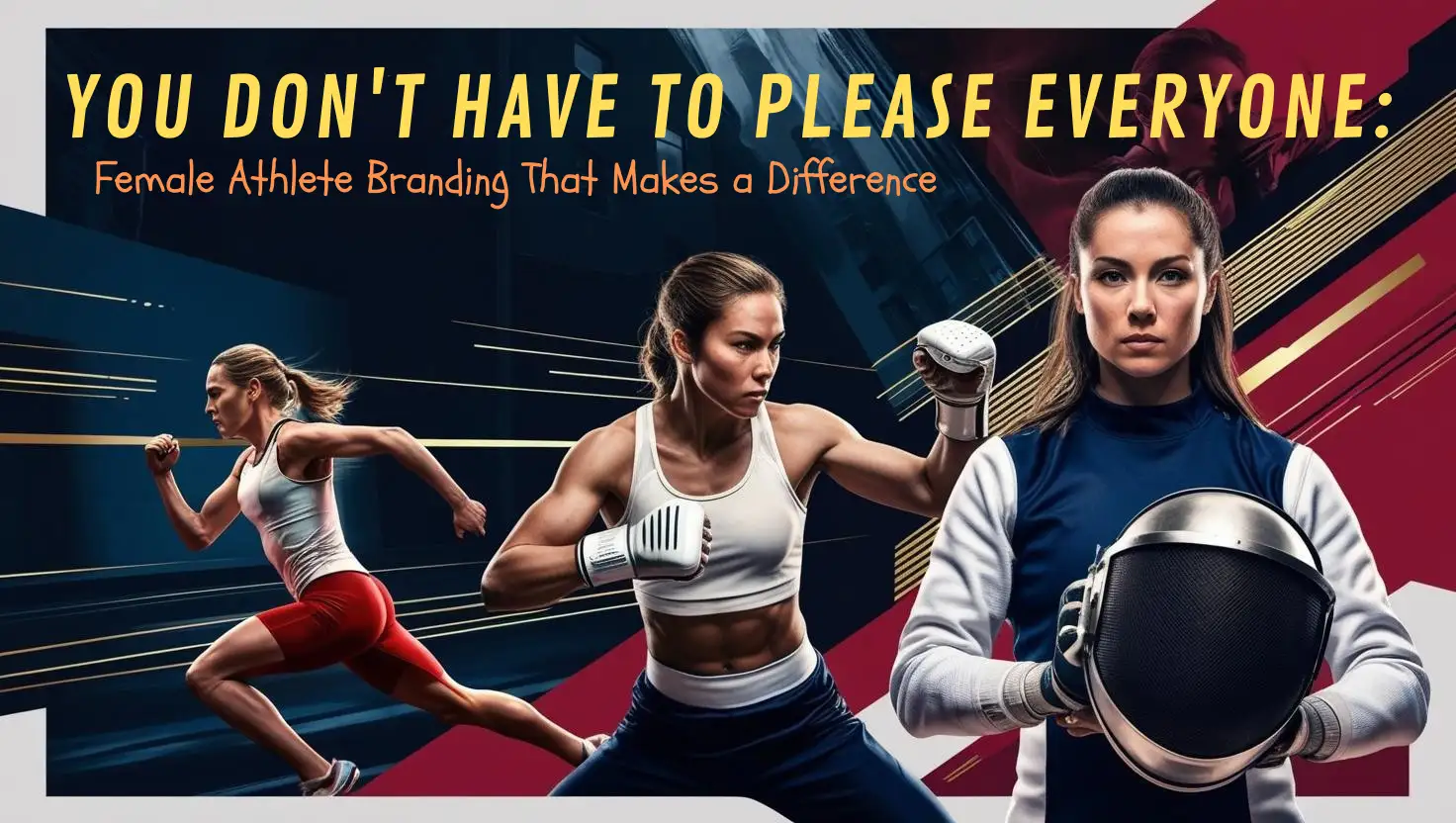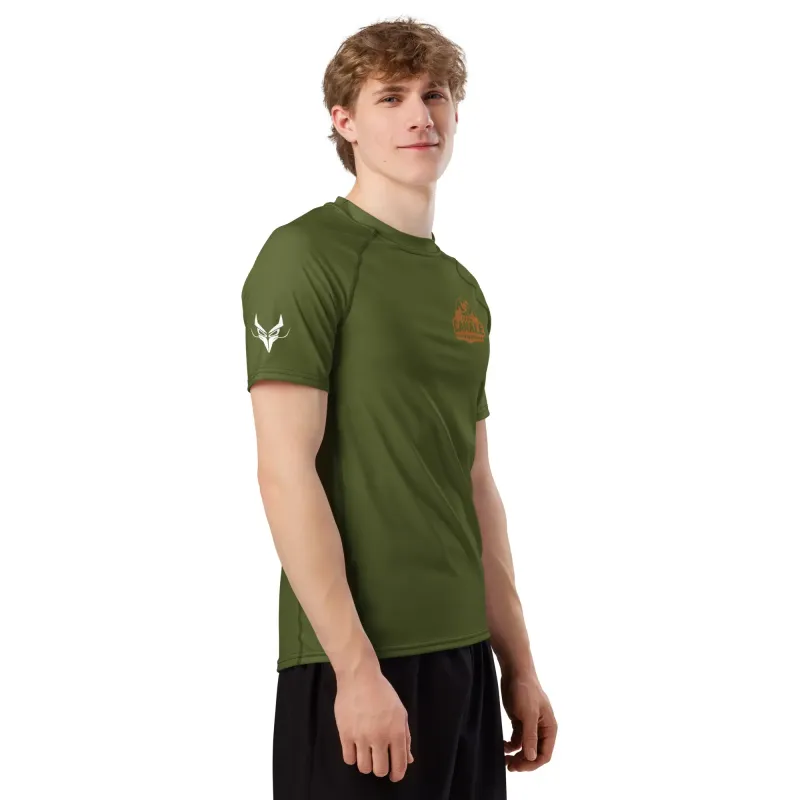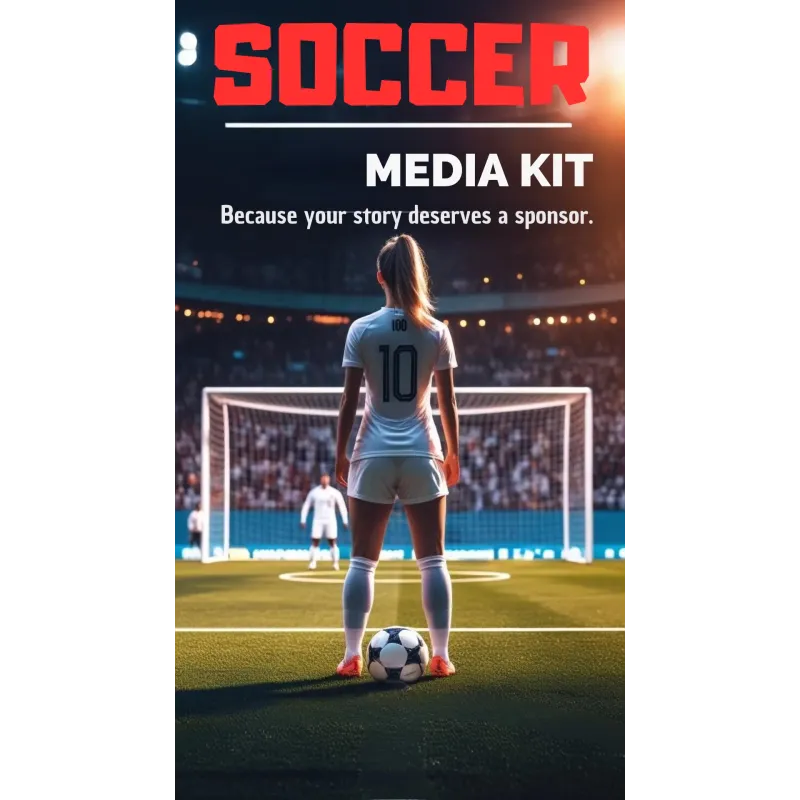You Don’t Have to Please Everyone: Female Athlete Branding That Makes a Differen
 , Social Media for Athletes
, Social Media for Athletes
 , Sponsorships & Opportunities for Athletes
, Sponsorships & Opportunities for Athletes


Why We Need to Talk About Female Athlete Branding
Talking about female athlete branding isn’t about separating categories — it’s about acknowledging that the experience of women in sport is still different. Different in visibility, in expectations, in how stories are told.
It’s not just about numbers (though they matter): less media coverage, fewer sponsors, and a lack of representation in leadership. But it’s also about perception. Every win often comes with an invisible fight — against stereotypes, aesthetic pressure, and constant judgement.
This is why a strong personal brand matters. Not to appear, but to assert. Not to please, but to be heard. Female branding is about awareness: building your voice means taking back control of how you're seen, heard, and remembered.
As I wrote in the article ["Why Athletes Need Personal Branding"], this isn’t about marketing — it’s about identity, vision, and independence. For every female athlete, your brand is your armour and your launchpad.
Step One: Choose to Be Yourself, Not What “Works”
Building an authentic brand starts with deciding who you want to be — not what will get the most likes. And for female athletes, this decision is even tougher: the system often rewards stereotypes — if you’re easy to frame, quiet, pleasing.
Many young athletes fall into this trap: they post what gets approval, not what reflects their truth. They smile when they’re exhausted. They share only wins, never the struggle. But a brand built on approval cracks. One built on honesty? It holds.
Choosing to tell your real story means showing who you are — on and off the field. Talk about what fires you up, what challenges you, how you train and why you keep showing up. Even if it’s not always polished.
Need inspiration? Look at interviews with Dina Asher-Smith or Sky Brown. Both have been honest about pressure, identity, and what it means to grow in the spotlight. They’ve built brands not on perfection, but on purpose.
The first step isn’t posting what works. It’s posting what’s real.
What Makes a Female Brand Strong, Authentic, and Respected
A personal brand for a female athlete shouldn’t be built to please. It should be built to represent. Represent a point of view, a way of living sport, an identity that’s coherent both on and off the field.
Here’s what it takes:
✔ Consistency between athlete and person
You’re not a product. If you feel forced to act a certain way just to be “marketable,” you’re performing. Real brands grow from truth. When your everyday self aligns with your athletic self, people connect.
✔ Clear values
What do you stand for? Equality? Mental health? Representation? Let it come through. You don’t need to shout it every day, but your values should be visible in how you speak, act, and respond.
✔ Authentic and conscious communication
You don’t need to share everything. But whatever you choose to share, make sure it reflects who you are. Authenticity isn’t about chaos — it’s about intention. People don’t want filters; they want clarity.
✔ Attitude, tone, and vision
Your words matter. Be clear, be bold, even when it’s uncomfortable. Every time you speak up, you shape your brand. And yes — you can be strong and feminine, sharp and warm. You don’t have to choose.
I recommend reading our article "[How to Build Your Athlete Identity]" — it’s a practical guide to understanding who you are and how to show up.
The Myths to Break
Here are some things you’ve probably heard:
“Being pretty is enough.”
“Better stay quiet.”
“Don’t come off too strong.”
These aren’t tips. They’re traps. And they keep too many women playing small.
If you believe the only way to be seen is to please, you’ll stop building on who you really are: a skilled, ambitious, and powerful athlete.
Strong female branding comes from breaking those myths. Think of Eniola Aluko, who went from elite footballer to lawyer, broadcaster, and outspoken voice on inclusion and gender equity. She didn’t fit a mould — she redefined it.
Respect isn’t something you ask for. It’s something you build.
And the way you communicate — especially online — isn’t just about being liked. It’s about shifting culture.
You’re not here to please. You’re here to be unapologetically visible.
Social Media: Use It Without Being Used
Social media can launch you — or trap you. It all depends on how you use it.
Take Beth Mead for example. She’s spoken openly about injury, comeback, self-worth, and the power of vulnerability. By sharing more than just highlights, she’s built a following based on connection, not just performance.
Here are a few core principles:
🛡 Protect your image
You don’t need to share it all. And if something feels off, don’t post it. Your comfort matters more than the algorithm.
🎯 Focus on quality over quantity
One honest, useful post can do more than ten random ones. Show your process, your mindset, your thoughts — that’s what builds a lasting story.
📢 Set your boundaries
Block, delete, ignore. It’s not weakness — it’s strength. You train your body. Train your digital space too.
💡 Show what makes you powerful
Not just what looks good. Your mental strength, growth, and reflections have value. Share what matters.
For more on this, check out our article: "[Social Media for Athletes: Build Your Career with Strategy]".
Your Brand Is Your Leverage
You might think sponsorships are only for medal-winners. But more and more, brands are looking for athletes who know how to communicate identity, values, and vision — especially when it’s real.
This is where female athlete branding becomes strategic. When you share your story with clarity, you build credibility. And credibility turns into opportunity.
Why would a sponsor choose you? Because you’re not just performance. You’re purpose. And that makes you stand out — to brands, coaches, and audiences.
Think of Nicola Adams, Olympic boxing champion who broke barriers not just in sport, but as a role model for the LGBTQ+ community. Or Lauren Rowles, who uses her platform to speak about disability, resilience, and equality. These athletes are memorable because their message is powerful — not because they played safe.
A clear personal brand isn’t just useful now — it’s your future strategy. It’ll support you post-competition, when the lights are off but your influence still matters.
Want to learn how to pitch yourself professionally? Check out our articles: "[How to Write a Sponsorship Email]" and "[Build Your Athlete Media Kit]".
🔚 Final Words
If you’ve made it this far, you care about more than performance. You care about being seen for who you are.
Your personal brand is not a costume — it’s your statement. You don’t need to be flawless. You need to be present, honest, and unapologetically you.
And if you’re wondering how to connect with brands, how to start creating opportunities and monetising your image, DRACONES can help you take your first real step.
👉 Visit the Creator page and apply. You’ll join a growing network of athletes with tools, mentorship, and real chances to grow your brand.
And for updates, free resources and guides, subscribe to the DRACONES newsletter.
Don’t wait to be discovered. Start showing up. And do it your way. 👊🔥
Share this content
















